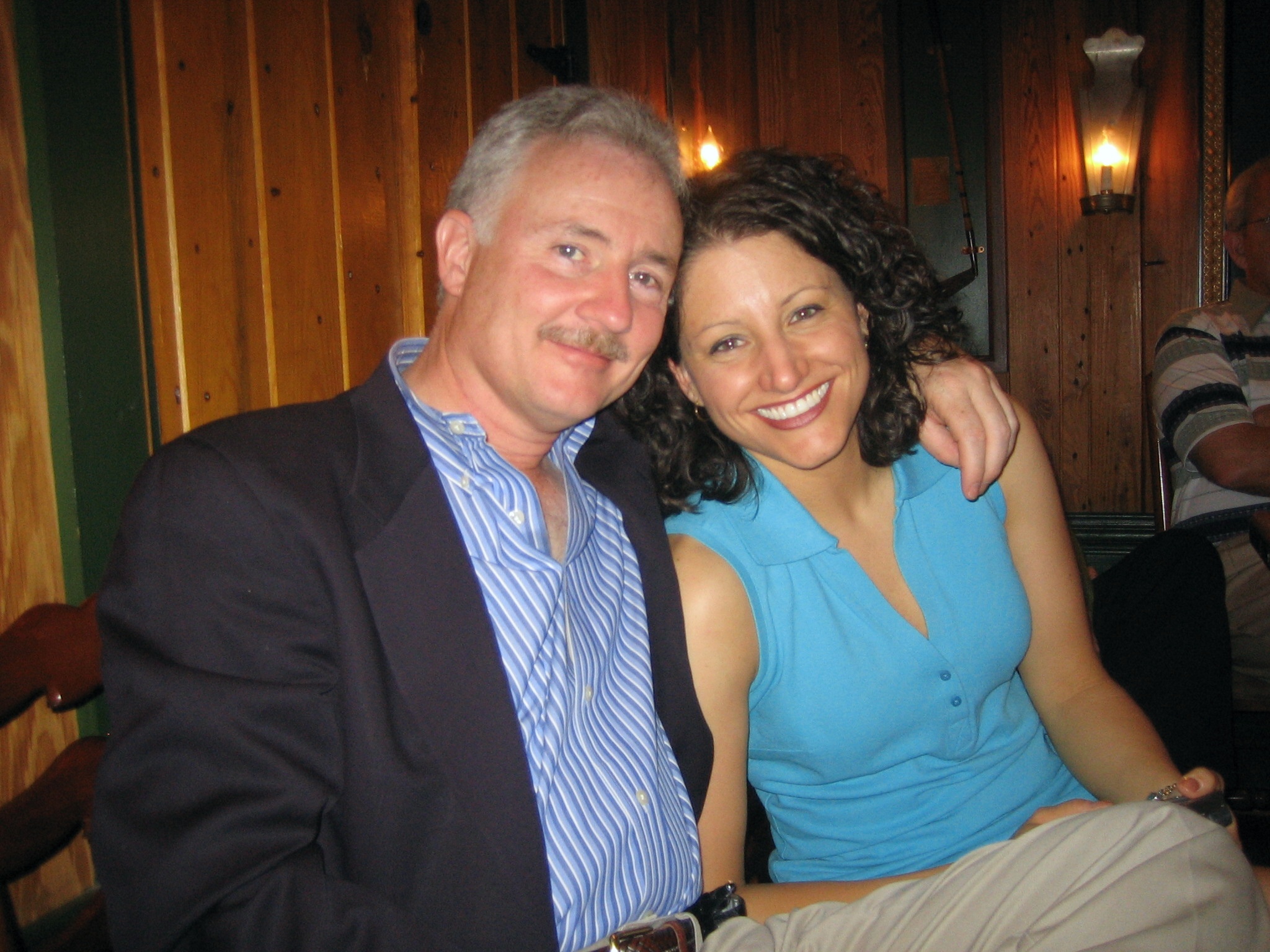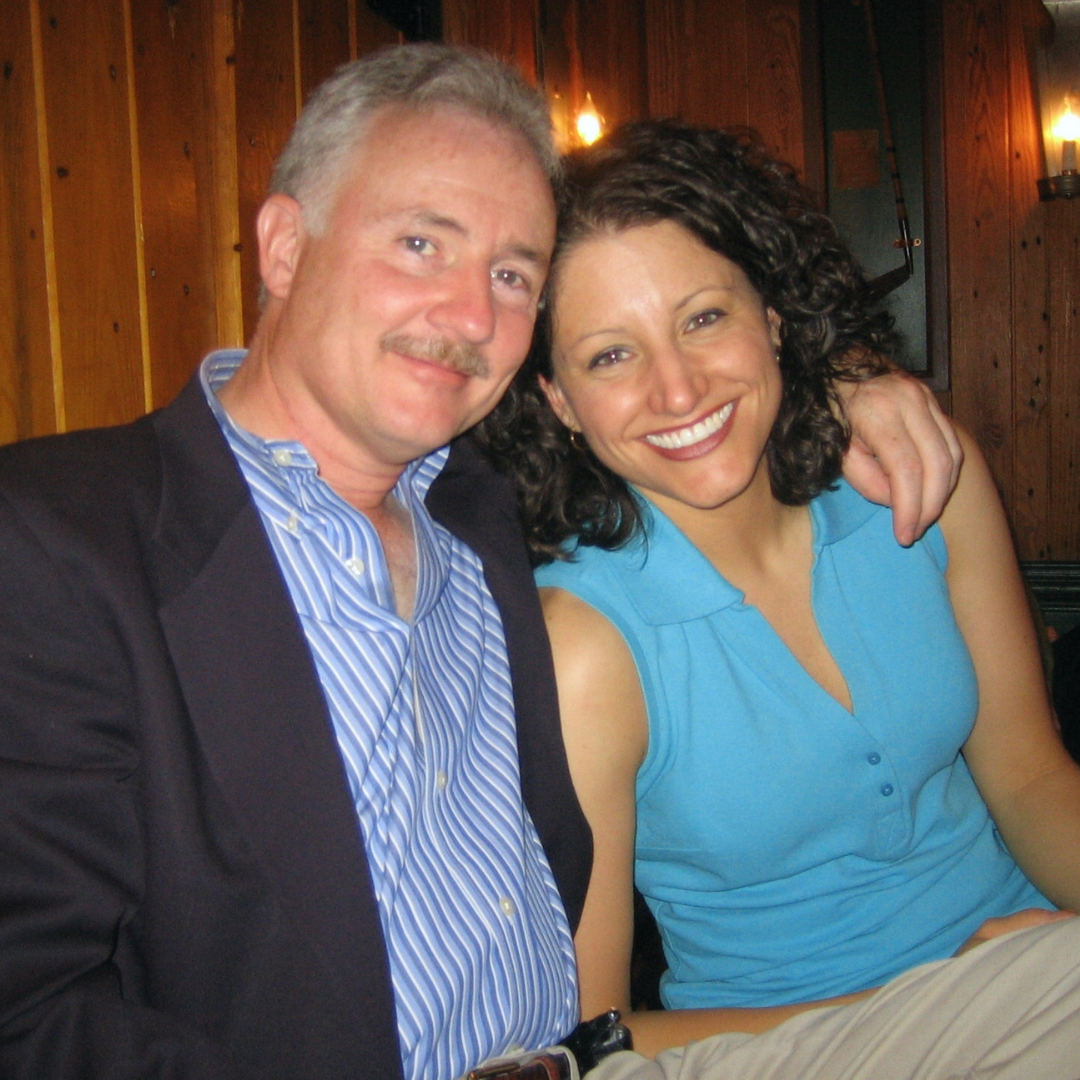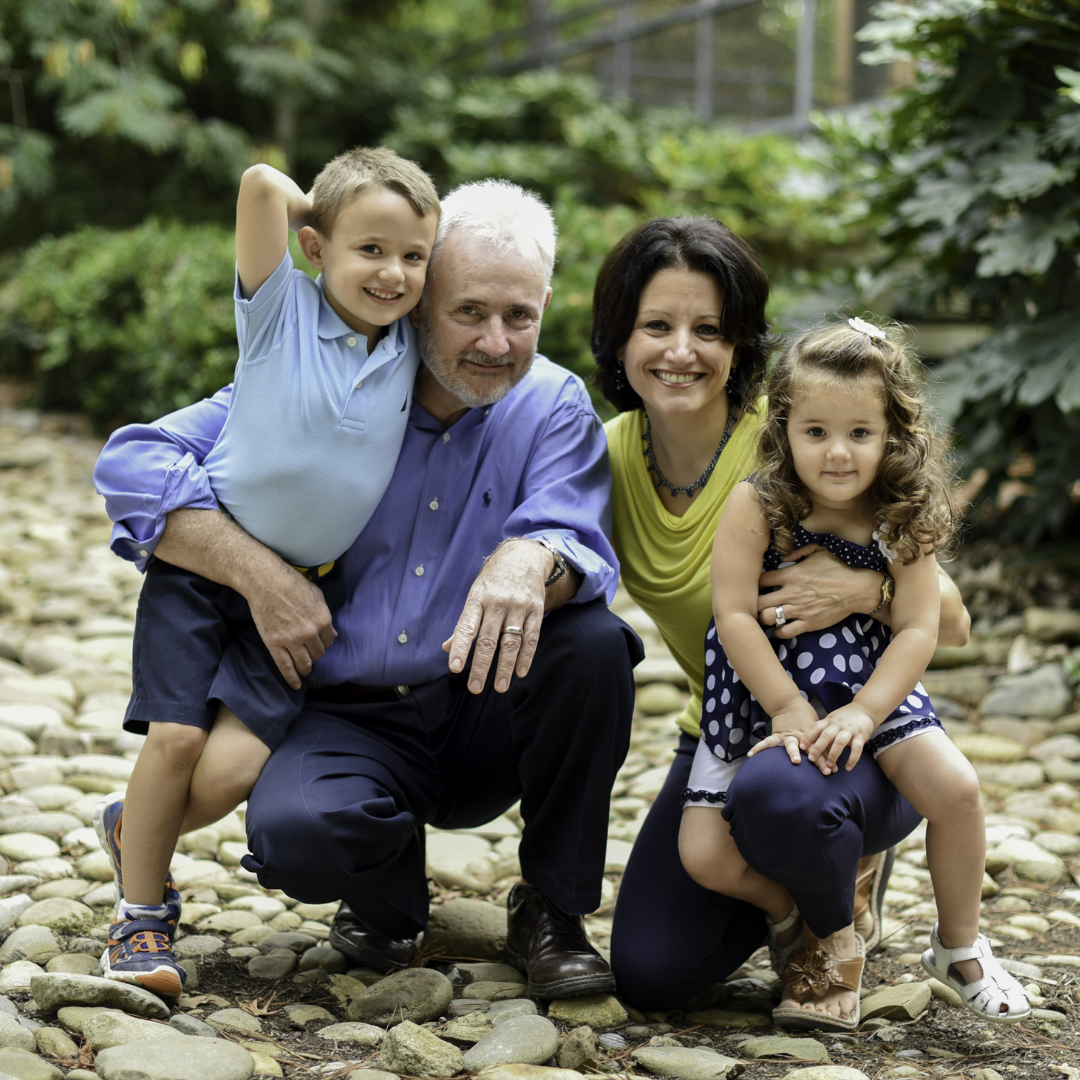‘What Lurks in the Woods:’ One family’s heartbreaking story of illness, caregiving, and love


It was a normal day at work when Nicole Bell got a call from her home security company. Her husband, Russ, was at home in Raleigh, North Carolina with the couple’s two young kids. He’d set off the alarm system and couldn’t remember the passcode to disarm it.
On its own, it wouldn’t raise any flags. But this wasn’t the first time Russ had forgotten something he’d known by heart. He’d been forgetting what time to pick the kids up from school and daycare, even though it was the same time every day. He’d misplace his keys. He’d forget conversations right after they happened.
Nicole knew something wasn’t right. Her husband—a brilliant engineer who had recently retired from a high-powered career—was becoming someone she didn’t recognize.
It wasn’t just the memory issues. Russ’s moods and demeanor changed, too. He was depressed, anxious, argumentative. He was not the same man she had married.
“Before that, I felt like I had everything,” Nicole said. “Russ was a true life partner for me. He was very supportive, funny and extremely smart. We had two young children, a boy and a girl, who were healthy and happy. Things were going really well. And then all of a sudden that very compatible, complementary relationship we had became more and more contentious, and I didn’t know why.”
The shift was considerable enough that she took Russ to see a doctor. Having done some research on her own, Nicole suspected a tick-borne illness like Lyme disease. But Russ’s Lyme test, along with other bloodwork, came back normal. The doctor referred them to a neurologist, who ordered an MRI to rule out a stroke.


While they were waiting on the results of his scan, Russ traveled to Atlanta to attend a funeral service. But on his way home, he became lost and frantic. He called Nicole begging for help, but then his cell phone ran out of battery. Distraught, Nicole issued a silver alert. A family friend eventually located Russ, who didn’t understand what had happened.
“I left in the middle of the night to pick him up. The next morning, on our drive home, we got the call that his MRI was normal,” Nicole said. “But the night I just went through was anything but normal.”
The neurologist sent Russ for a PET scan, which revealed a crushing diagnosis: He had late-stage Alzheimer’s disease.
Nicole didn’t understand. Russ was only 60—almost two decades younger than the average Alzheimer’s patient at diagnosis.1 He had no family history, no genetic risk, and he lived an active and healthy lifestyle.
“I couldn’t believe it. All the things they say to do for brain health, Russ did it,” Nicole said. “It was gut-wrenching because the diagnosis didn’t feel like answers. It felt like more questions.”
It would be another year before Russ would finally test positive for Lyme disease and two other tick-borne infections, which Nicole suspects was the root cause of Russ’s symptoms. By then, though, his cognitive condition had declined even further. And Nicole was no longer just Russ’s wife; she was his caregiver and medical advocate.
“As he got sicker, it got harder and harder,” she said. “We couldn’t get ahead of it. It felt more like playing defense rather than offense.”
Nicole was tracking her husband’s symptoms, taking him to doctor’s appointments, managing the house, and raising her two children on her own. Chores Russ used to handle, like helping with the kids, managing the family finances, and dealing with home repairs, now fell on Nicole’s shoulders.
Eventually it became impossible for her to keep her full-time job. Russ’s illness, she said, was creating “constant chaos.” He began hallucinating, convinced there were people living in their backyard who were out to get him. As the disease took over his mind, he would often scream at Nicole, who struggled more and more to keep him calm.
“Part of the journey was talking to the kids and saying, ‘This is not how Dad is; this is his disease,’” she said. “But there was no space and time to grieve that loss. There were so many moments when I wanted to go talk to someone, but he was my someone. He was my sounding board. He was always the person I went to. And now all of a sudden, the next best mind I had in the house was an eight-year-old boy.”
Becoming a caretaker to her spouse, rather than to a parent or other family member, she said, meant losing her freedom, her best friend and her partner, all at the same time.
There were so many moments when I wanted to go talk to someone, but he was my someone. He was always the person I went to. And now all of a sudden, the next best mind I had in the house was an eight-year-old boy.
Although she felt isolated, Nicole is not alone in her experience. More than 20% of U.S. adults serve as family caregivers to an ill or disabled relative.2 Studies show that family caregivers “rarely receive adequate preparation for their role,” which can be intensive and demanding.
Marya Evans, a nurse account manager at Blue Cross and Blue Shield of North Carolina (Blue Cross NC), said caregiving is one of the most difficult roles to fill, especially in a situation like Nicole’s.
“Sometimes taking a caregiver role is a choice, but most often it’s an obligation, or it’s expected,” Marya said. “Typically they’re not prepared to navigate the world as the other person’s advocate.”
Marya spent the first part of her Blue Cross NC career as a nurse case manager, helping members coordinate their doctor’s visits, navigate the health care system, and manage their symptoms. Case management services are offered at no additional cost to members with complex illnesses or chronic conditions, which helps to reduce the burden to both patient and caregiver.
“Caregiving changes relationships, strains boundaries, provides new stressors, and can be very draining, especially if you are already a caregiver to others like your children,” Marya said. “It’s hard to imagine the changes it can cause unless you are in it or have been through it.”
Studies suggest that caregivers for people with dementia may be at the highest risk for negative psychological impacts.3 In both Marya’s and Nicole’s experiences, these results ring true.
“In situations where caregivers are taking care of people who are suffering from chronic memory loss – Alzheimer’s, dementia – or a severe brain injury, the person you once knew may no longer be who you are caring for,” Marya said. “There may be times when they don’t recognize you, call you someone else’s name, even verbally or physically lash out at you. This can cause even greater stress on the caregiver.”
“In my experience, dementia is really a special kind of caregiving,” Nicole added. “There’s a lot of chaos that the disease brings in, especially when a person is no longer aware of their illness. It’s a huge mental burden to live in that type of environment.”
And each stage of caregiving presents its own unique challenges. Caregivers might start by coordinating visits to a myriad of doctors, followed by transporting a patient to and from hospital care and rehabilitation, and finally to placing a patient in assisted living or end-of-life care.
Nicole, like many family caregivers, was eventually forced to make the decision to put Russ in a residential care facility. She could no longer manage his illness or her own well-being.
“I had so much to do that I was just ‘doing’ all the time. I got to a state where I couldn’t relax. I couldn’t sit down. Something would always come into my head that I had to get done,” she said. “When he was in resident care and I got a chance to sit down and breathe, I realized that even though I told myself that I was okay a thousand times, I clearly was not. I finally saw the insanity that I had lived in.”

Tragically, Russ died of his illnesses, leaving Nicole and the couple’s two children behind. Nicole’s focus since has been on supporting her kids, as well as processing and grieving the loss of her husband and best friend.
Out of the grief and turmoil of the past six years, Nicole found within herself a memoir, What Lurks in the Woods. Her book, which draws upon years of journal entries detailing Russ’s decline, sheds light on the dangers of Lyme disease and the essential and exhausting role of caregiving. She hopes sharing more about Russ’s illness and their journey together will change the landscape of care in a meaningful way.
She also hopes to provide support and validation to other caregivers. Reflecting on her experience, Nicole said her biggest regret is not reaching out for help in the midst of their struggle.
“I used to tell myself, ‘I can do this all on my own,’ but the reality was I didn’t have to,” she said. “Caregivers need to get good at two things: asking for help and practicing self-care. Find a support group, ask a friend to check in on you, take a walk every day… Whatever it takes to restore and refill your cup a little – it has to happen, or you’ll lose yourself in the process.”
As Nicole focuses on healing, she’s found respite in meditation, writing, somatic breathwork, and other mindfulness exercises to help restore her own well-being. She encourages other caregivers to give themselves the benefit of social support and self-love while searching for the root cause of their loved one’s illness and navigating the daily ups and downs of caregiving.
“Nobody prepares you to be chronically ill, and nobody prepares you to be a caregiver. You get thrown into it and figure it out,” she said. “Sometimes you emerge victorious, and sometimes you get crushed. I survived and learned from the experience, so mine was probably a little bit of both.”
Blue Cross and Blue Shield of North Carolina (Blue Cross NC) offers Nurse Case Management for your convenience and is not liable in any way for the goods or services received; results are not guaranteed. Decisions regarding your care should be made with the advice of your doctor. Blue Cross NC reserves the right to change or discontinue the program at any time without prior notification from Blue Cross NC.
Sources:
1] https://www.ncbi.nlm.nih.gov/pmc/articles/PMC4619185/
2] https://www.aarp.org/ppi/info-2020/caregiving-in-the-united-states.html
3] https://www.ncbi.nlm.nih.gov/books/NBK396398/
The post ‘What Lurks in the Woods:’ One family’s heartbreaking story of illness, caregiving, and love appeared first on Point of Blue.







